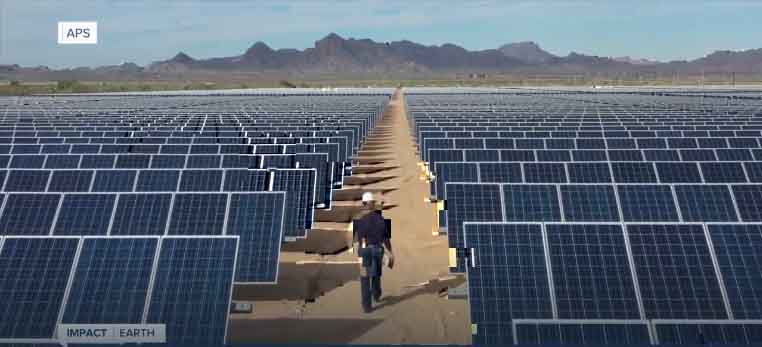June 7, 2022
The Honorable Mark Kelly
U.S. Senate
516 Hart Senate Office Building Washington, DC 20510
Dear Senator Kelly,
Last year, we wrote seeking your support for a robust energy tax package that would help the solar industry meet our nation’s climate goals. Now, as the Senate gets closer to considering reconciliation legislation, we are asking for your active support in getting this measure over the finish line. To create jobs and economic prosperity for millions of Americans, we ask for your strong support for passage of the reconciliation energy tax package that will spur solar and clean energy in Arizona, including a 10-year extension of the investment tax credit (ITC). Extending the ITC and adding the option to utilize the credit directly is critical to Arizona’s solar development.
Arizona is an incredible solar state, ranking fifth nationwide in overall solar installed, and second in solar energy potential. This has resulted in tremendous economic growth and future potential for Arizona businesses. Hard work, small business ingenuity, and an abundance of sun has made Arizona home to more than 300 companies and more than 7,300 jobs working to advance solar innovation and energy freedom. There are multitudes of young people who are looking to enter careers in solar, thanks in large part to the excellent programs at Arizona State University and the University of Arizona. These jobs range across multiple fields, including design, development, construction, and operations & maintenance. The jobs created by this growing industry span the range of professional opportunities, from immediately available jobs that require no advanced education to those that utilize a PhD.
A wide range of non-solar businesses in Arizona are also benefitting from the clean energy economy. In towns, communities, and urban areas, solar is driving down company costs and saving businesses money. In rural areas, ranchers are utilizing solar to save on electricity costs, diversifying farm income and assisting with irrigation. And for families across the state, solar helps save money on home energy bills. Solar contributes not just to national energy independence – it helps small businesses and families with financial independence and stability.
Despite tremendous progress in states like Arizona, the United States is falling behind on efforts to meet critical climate goals. Arizonans can benefit from continued investments in the state’s solar energy economy, contributing towards meeting our nation’s climate goals while providing local jobs and reliable economic growth for our state. We strongly urge you to work towards the passage of a robust climate reconciliation package that includes a long-term extension of the solar ITC along with direct pay, to allow businesses to plan for a much larger clean energy buildout than is possible under current policy. We also ask for your continued support of a standalone energy storage credit to help the U.S. meet our energy needs and enhance the resilience of our electricity supply. Additionally, the manufacturing provisions in the legislation ensure that there will be a boom in domestic solar manufacturing.
We understand that as the Senate considers a reconciliation package, officials will weigh budgetary issues. The investment tax credit is fiscally prudent and contributes to rapid and needed economic growth. Not only does the ITC save money for families, businesses, and schools, it is an anchor that leverages further critical private sector investment.
We appreciate your support and look forward to hearing from you.
Sincerely,
Autumn Johnson
Executive Director
Arizona Solar Energy Industries Association (AriSEIA)
Identical letter sent to Senator Sinema

 APS has several large photovoltaic (PV) systems in the desert outside Gila Bend, Arizona. They are now adding energy storage systems to some of these PV systems. There is a good article about these on ABC15.com
APS has several large photovoltaic (PV) systems in the desert outside Gila Bend, Arizona. They are now adding energy storage systems to some of these PV systems. There is a good article about these on ABC15.com
